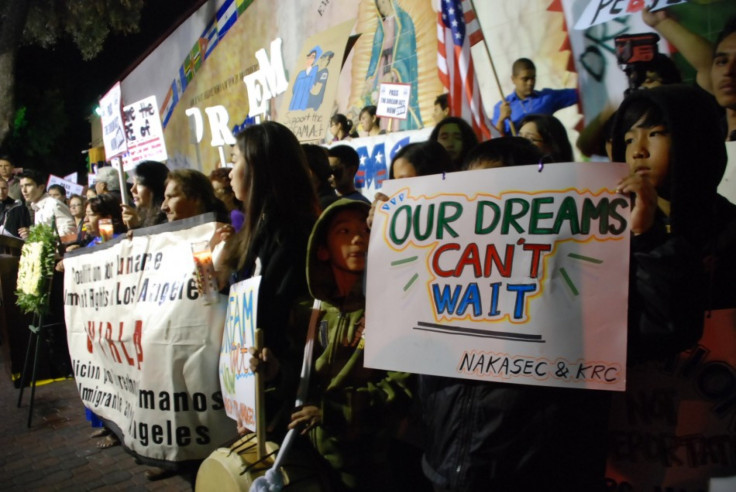Dream Act California: What Gov. Brown's Bill Means for Students, Taxpayers

California Governor Jerry Brown announced Saturday that he has signed the second half of California's Dream Act legislative package, which will begin in 2013. But what is the Dream Act, and what impact will it have on the California?
What is the California Dream Act?
- Packages of laws by Gov. Jerry Brown on Saturday
- Grants certain illegal aliens access to college financial aid
- First part, signed in July, approves private scholarships and loans for students who are undocumented immigrants
- Second part, signed this weekend, allows undocumented immigrants to apply for state-funded scholarships and aid to state universities
Is it the same as the Federal Dream Act?
The Federal Dream Act (Development, Relief, and Education for Alien Minors) also aimed to help those who entered the country illegally while still minors.
The Federal law, however, was filibustered and fell apart last year. It promoted a college education, but would have used it as an avenue to U.S. citizenship.
The California version does not (and cannot) create pathways for citizenship. Instead, it allows illegal immigrants attempting to gain citizenship through established routes to go to college while they do so.
What other states have these laws?
Ten other states have passed laws that allow undocumented students some form New York, Texas, Utah, Washington, and Wisconsin.
Nine other states, Colorado, Connecticut, Florida, Iowa, Massachusetts, Mississippi, Missouri, Oregon, and Rhode Island, are currently considering adopting similar laws.
Who qualifies for the Dream Act?
Applicants must:
- Have entered country before age 16
- Have graduated from a California high school after having attended for three years
- Be in process of applying to legalize current status
- Have at least five years continuous presence on U.S. soil
- Show financial aid and meet academic standards
What will the Dream Act do for students?
Each year, about 25,000 undocumented students graduate from high school in California. Many of these students came to America when they were very young, before they had any say in their education or choices. As such, many legislators feel this bill gives them an opportunity both to become Americans and fulfill the American dream.
After having invested 12 years in the high school education of these young men and women, who are here through no fault of their own, Assemblyman Gil Cedillo (D- Los Angeles) said Saturday, it's the smartest thing for us to do to permit these students to get scholarships and be treated like every other student.
Many undocumented students are not able to attend college without financial assistance. Almost 40% of undocumented students families' live below the federal poverty line, compared to 17% percent for native-born families, according to the Immigration Policy Center.
Approximately 2,500 students are expected to apply under the program thus far.
What will the Dream Act cost taxpayers?
The Dream Act will require an estimated $14.5 million a year in state grants to illegal aliens.
Federation for American Immigration Reform spokeswoman Kristen Williamson claimed the bill was reckless and a waste of taxpayer money, pointing to the state's broken economic system and the recent rise in tuition.
Brown, however, downplayed the cost, saying that it may end up affecting only 1% of the $1.4 billion provided for annual funding in the first place.
The second half of the Dream Act is the most contentious, as it deals with state funds. The Act specifies, however, immigrant students meet the same requirements as all others applying for aid, and that they only qualify after all the other legal residents have applied.
Cedillo told Fox News that the legislation, while costing taxpayers more in the short-term, will ultimately make California more competitive in the global economy by educating a workforce that has already shown resilience and leadership.
Assemblyman Tim Donnelly (R-Hesperia), however, feels the bill is the biggest mistake the Democratic Party has made this year.
The polling indicates that 80 to 90 percent of Californians are against this, and it crosses party lines, Donnelly said. It is absolutely, fundamentally wrong and unfair and it is an insult to people who have worked and played by the rules, including those who have come to this country legally.
© Copyright IBTimes 2024. All rights reserved.





















